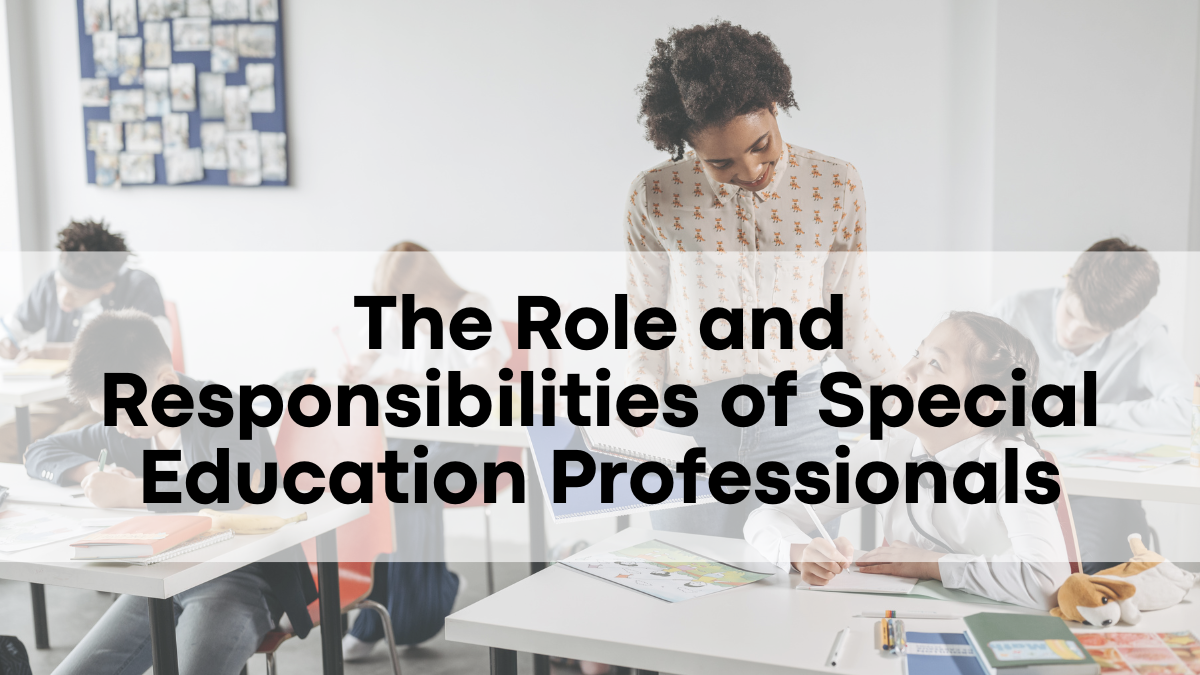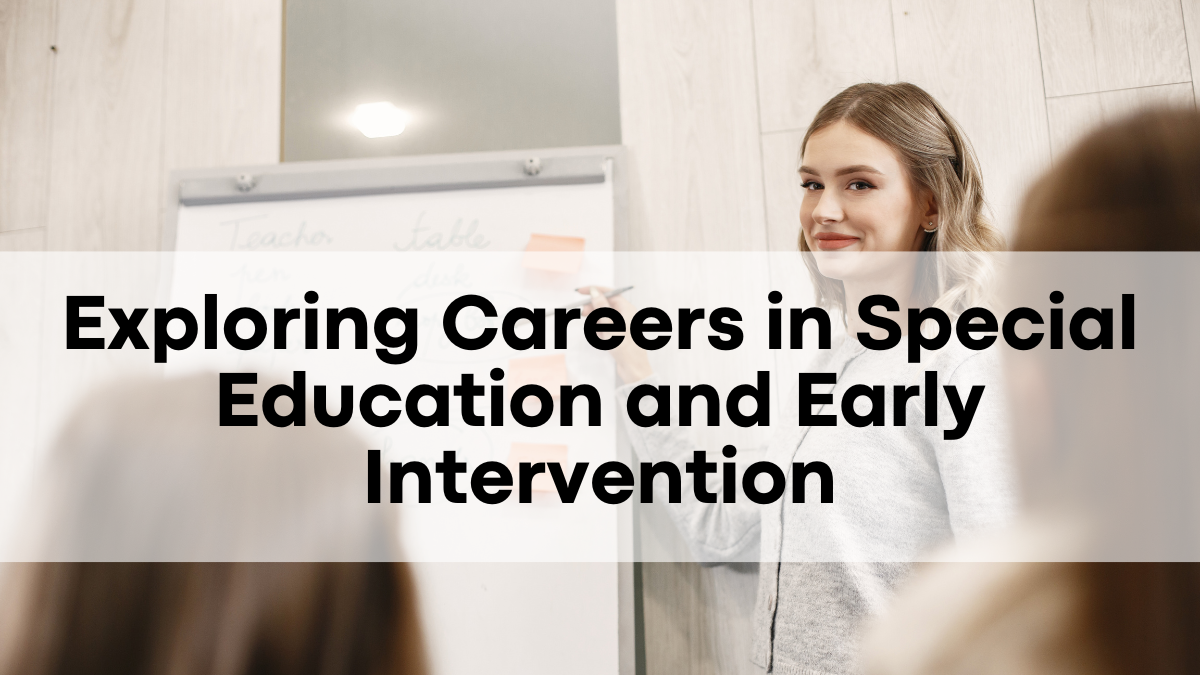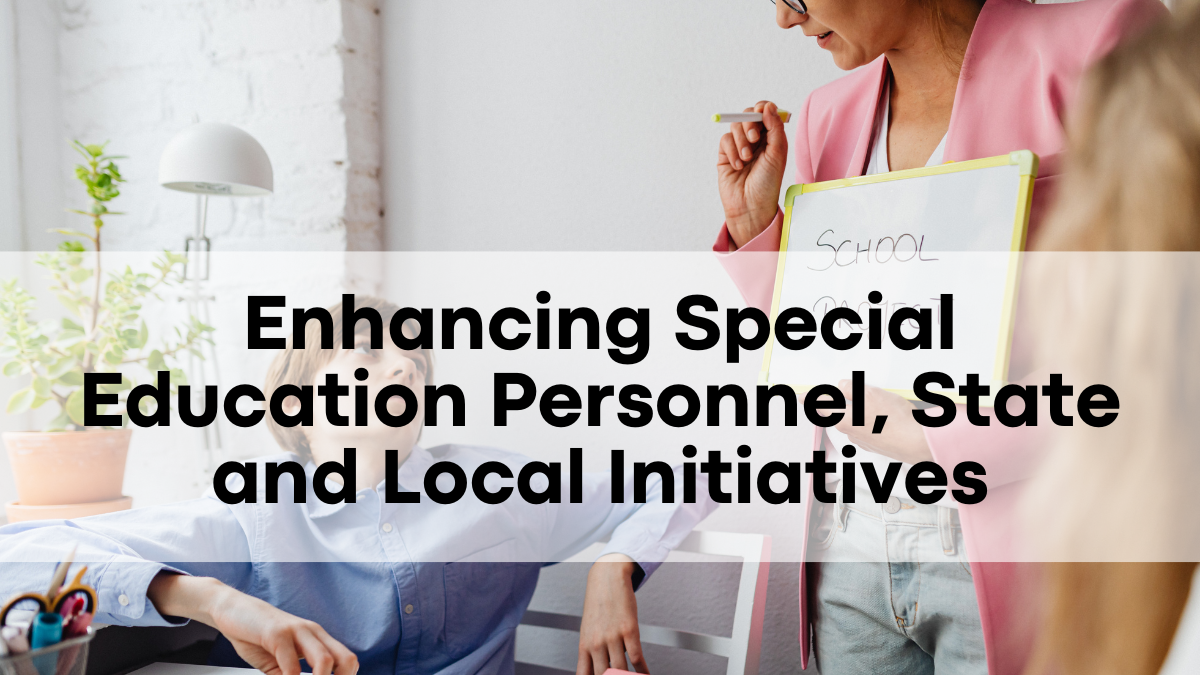Special education professionals play an essential and unique role in the educational journey of children with special needs. These educators help students overcome barriers to learning, tailoring their instruction and support to each individual’s needs. The impact of their work can have lasting benefits for the students, shaping their academic achievements, self-esteem, and future opportunities.

Key Roles and Responsibilities of Special Education Professionals
Special education professionals are tasked with designing and implementing personalized learning plans for students. Their daily activities and responsibilities depend largely on the students’ specific goals and educational settings. The various environments where special education professionals may work include:
- General education classrooms
- Combination of general education and specialized classrooms designed to provide maximum support
- Self-contained classrooms for students who require more intensive, specialized attention
- Hospital or homebound settings for students who cannot attend school due to illness or disability
- Preschool settings for infants, toddlers, and preschool-aged children
These diverse environments require flexibility, creativity, and a deep understanding of each child’s individual needs.
Diverse Needs of Special Education Students
Children and youth receiving early intervention, special education, and related services come from diverse backgrounds and have varying abilities. Despite their differences, they all require specialized support to ensure they can thrive academically and socially. Special education professionals must be prepared to meet the needs of students who:
- Have different abilities, learning styles, and personalities
- Come from a variety of cultural backgrounds, and may speak different languages
- Have unique learning needs that require individualized attention
These students may experience a range of challenges, such as:
- Cognitive impairments, including intellectual disabilities
- Learning disabilities that require specific, targeted teaching strategies
- Physical disabilities that limit mobility
- Sensory impairments, such as hearing loss or vision impairments
- Emotional or social disabilities
- Traumatic brain injury
- Autism spectrum disorder
- Speech or language impairments
- Chronic health problems
- Multiple disabilities that require comprehensive care and support
The Impact of Special Education Professionals
As a special education professional, you’ll not only provide academic support, but you’ll also help foster a passion for learning in your students. The role is both demanding and rewarding, as you work collaboratively with a team of educators, parents, and specialists to design and implement individualized learning plans (IEPs). These plans are tailored to meet the specific needs of each child.
Key Responsibilities Include
- Collaboration with administrators, counselors, parents, community agencies, and other professionals to ensure holistic success for the child.
- Data collection and assessment to understand each student’s learning needs and adapt instructional strategies accordingly.
- Delivery of tailored instruction based on the child’s specific educational needs, utilizing the general education curriculum as a guide.
- Behavior management strategies that promote positive behaviors both in and outside of the classroom, ensuring students can engage in their educational journey.
Conclusion
Special education professionals hold a critical role in creating an inclusive educational environment that supports students with a wide range of disabilities. The goal is not only academic success but also emotional growth, social integration, and preparing students for the future. By designing individualized education plans, collaborating with families and other professionals, and applying best teaching practices, special education professionals help students with unique learning needs achieve their full potential.
For More Information Click Here


